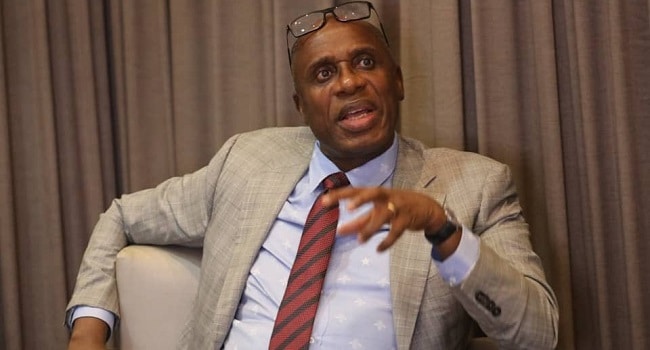Barely a day after the African Democratic Congress (ADC) coalition was introduced as a new opposition force ahead of the 2027 elections, internal rifts have begun to surface among its top figures. What was initially seen as a united front against President Bola Tinubu’s administration is already showing cracks, as individual ambitions begin to overshadow the spirit of cooperation.
Former Minister of Transportation and ex-Governor of Rivers State, Rotimi Amaechi, has become the first to declare his interest in the presidential race under the ADC platform. Speaking on Politics Today on Channels Television, Amaechi said he would serve only one term if elected. He pointed to the worsening economy and rising insecurity as reasons why Tinubu’s government should be voted out. He also insisted that the South must complete its turn in the presidency.
This declaration has sparked open rivalry within the coalition. Although formed to present a united challenge to the ruling APC, major figures are already pushing for personal political gains under the same umbrella.
Yusuf Datti Baba-Ahmed, who was Peter Obi’s running mate in 2023, publicly argued that Obi should lead the coalition’s ticket. He said Obi’s performance in the last general election and strong youth support make him the most suitable candidate. During an interview on Arise TV, Datti said Obi should not settle for the vice-presidency after winning a disputed 10 million votes.
While Peter Obi has not officially left the Labour Party, his involvement in ADC meetings has raised speculation about a possible switch. If he isn’t nominated, his supporters believe he may withdraw from the coalition entirely. Despite calling Atiku his political elder, Obi’s allies argue he stands a better chance of winning national support, especially given the growing demand for a southern presidency.
Meanwhile, Atiku Abubakar has yet to declare his intention to run formally. However, insiders say he may be preparing for what could be his seventh and final shot at the presidency. With the PDP weakened by internal conflict, Atiku is believed to have played a significant role in the formation of the ADC coalition to rebuild opposition strength. Critics say his motives may be more about personal ambition than unity.
Though calls for a southern president are growing, Atiku’s camp remains confident in the North’s voting power. His proven ability to win party primaries may give him an edge if ADC’s internal contests become heated.
Supporters of both Obi and Atiku have already begun mobilising within the ADC. Youth groups are backing Obi, while many Northern PDP leaders are leaning towards Atiku. There is talk of a joint ticket pairing both candidates, but Datti and the Obidient movement appear firmly opposed to Obi playing second fiddle in 2027.
The ADC faces a test of its strength, not just against the ruling APC, but within its ranks as political heavyweights push to shape its future.

